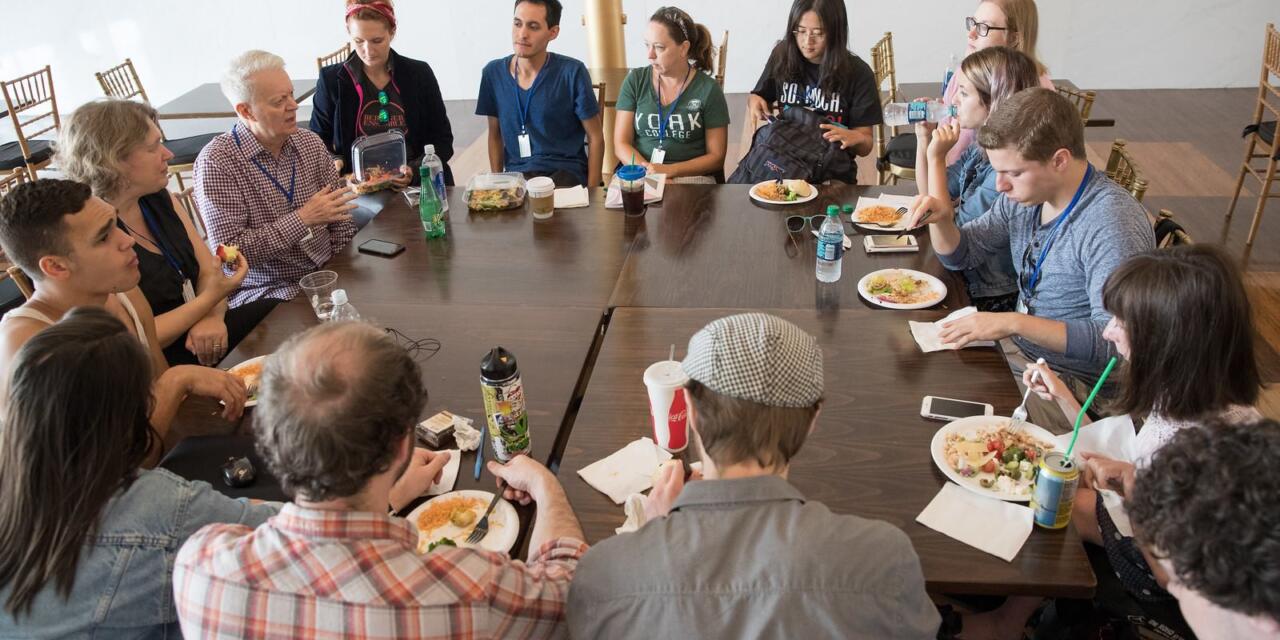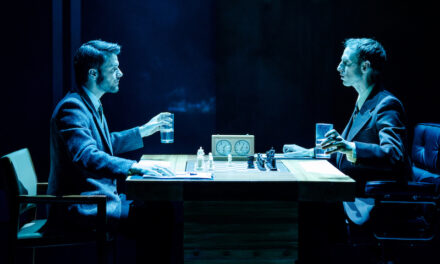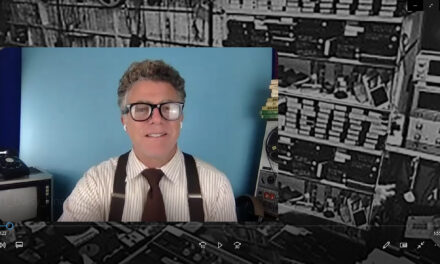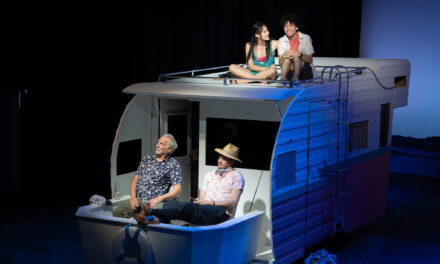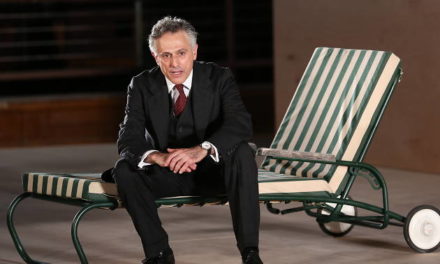During a summer of uncertainty and anxiety for American theatres and artists alike, a cohort of emerging and established dramaturgs was offered a space to reflect, imagine, and share at the 11th Annual Kennedy Center Dramaturgy Intensive. The Intensive occurred from July 14th – 17th, taking place virtually for the third year in a row. As a participant in the 2022 Intensive, I can attest to its immediacy and success, and to the discoveries made by mentors and participants alike.
The program was first established in 2011 by Gregg Henry and Mark Bly as a partner program to the MFA Playwright’s Workshop. In its pre-pandemic form, the Intensive brought budding dramaturgs to Washington D.C. for a week of lectures, discussions, and workshops, pairing groups with mentor dramaturgs from the field. While the digital 2022 Intensive may have looked much different than those in previous years, its goal has remained much the same: to bridge the gap between the academic and professional worlds. This objective is reflected across the many educational programs at the Kennedy Center, including the annual Kennedy Center American College Theater Festival (KCACTF), a network of regional competitions and opportunities for students attending higher-ed institutions in a variety of theatrical disciplines.
I spoke with two Kennedy Center Dramaturgy Fellows, Ambree Feaster (Sam Houston State University) and Payton Scudieri (Illinois State University), who were awarded such fellowships after receiving the esteemed 2022 Dramaturgy Award for their respective KCACTF regions. As Fellows, Feaster and Scudieri were invited to the Kennedy Center in April for the National Festival to attend a series of events and workshops, much like those in the Dramaturgy Intensive. “There was one workshop on adaptations,” explained Feaster, “Look at what it’s like to be a dramaturg on a play adapted from a source material, another thing I didn’t really know a lot about. Another one of those things that open up a door in dramaturgy.”
Both Fellows repeatedly discussed discovering these doors, these pathways within and parallel to the field of dramaturgy, ones not often discussed in the academic sphere. Participants in the Intensive also heard from and conversed with several dramaturgs, leaders in the field, who showed us new careers to explore, such as literary agent, reporter, and translator. However, the Intensive did not just allow us to discover a long list of doors available for the chameleon dramaturg. We were also asked to examine the very act of discovery itself.
The Intensive was launched on July 14, as Mark Bly set the stage with a workshop based on his essay, “The Dramaturgical Impulse – or How Big Is Your Universe?” Bly argues that it is the dramaturg’s responsibility, their primary role, to foster a questioning spirit within themselves and among their peers. Through a willing encouragement of curiosity, dramaturgs can lead artists to discover doors, pathways which can expand one’s theatrical universe. Bly emphasized that as citizens it is also our responsibility to turn our questions and curiosity towards those inequitable infrastructures that make up the skeleton of our theatrical and societal institutions. Reexamining the current and reimagining the possible, both within and beyond the theatre, was a central and repeated theme throughout the weekend.
On the first day, we met with Lydia Garcia, “dramaturg in disguise,” who currently works as the Executive Director of Equity and Organization Culture at the Denver Center for the Performing Arts. Garcia pointed to the importance of dismantling the colonial frameworks that permeate our theatres, and to rebuild our institutions by incorporating a multiplicity of world views into their practices. We were asked to examine the literary canon, and to question the process of why certain plays are, and certain others are not, granted the title of “classic.” Ken Cerniglia, nationally known dramaturg, also confronted the canon when he spoke with us on day two. Cerniglia argued that a classic play must be evergreen, a title not all canonical plays should be granted. When discussing their work on Karen Zacarías’s bilingual Latindad adaptation Romeo y Juliet, for the California Shakespeare Festival with resident dramaturg Philippa Kelly, Cerniglia and director KJ Sanchez tracked the evolution of this production set in the 1840s with Romeo and Juliet as women and shared videos of it. Their approach was one that disrupted both the privileging of English and the deifying of Shakespeare’s original language.
Over the course of the Intensive, participants continued to hear from outstanding artists who embody what it means to be a citizen dramaturg. Caridad Svich led a workshop on the non-linear form, presenting on how she reimagines rehearsals and performances as not products, but as spaces, or playgrounds, in which the audience is a collaborator. The creator of the newsletter “Nothing for the Group,” Lauren Halvorsen, and the author of the manifesto “I Dare Us,” Julie Felise Dubiner, each shared how their writings sought to challenge the theater community to reevaluate and confront their current practices. Literary agent Beth Blickers spoke to a similar sentiment, as she declared, “We must eliminate the phrase ‘That’s how it’s always been done’ from our theaters.”
On the final day of the Intensive, we participated in a new workshop created by Bly and Henry, entitled the “Kafka’s Train Exercise,” through which we had the opportunity to wield our questioning spirit. Each dramaturg was asked to write and share a short play in response to a prompt. We then were each assigned another participant’s play to read and explore in preparation for a conversation with our peer playwright. On the day of the workshop, we were joined by four leading dramaturgs, Lenora Inez Brown, Jacqueline Lawton, Matt McGeachy, and Deanie Vallone, who observed our new play dramaturgy conversations. These dramaturgs offered feedback to each dramaturg-playwright pair, encouraging us to practice our listening and embrace our mistakes.
As the workshop and weekend approached its end, Mark Bly ask each of us to reflect on and speak to our reactions to the Intensive. Participants began to express gratitude for the time and teachings each visiting artist and dramaturg offered. Payton Scudieri, a KCACTF Award winner, shared with me a similar experience she had when working as a Dramaturgy Fellow at the Eugene O’Neill Theatre Center: “Seeing actual dramaturgs, amazing women like Kristin Leahy, and getting to observe their process, watch, and talk to them…They were such geniuses, these women. They gave me inspiration, things to potentially look forward to for my career.”
I couldn’t agree more with Payton. During my time as the Literary Resident at Milwaukee Repertory Theatre, Deanie Vallone was my kind and inspiring mentor, one who gave me insight into the ways of dramaturgy and the world. I am truly grateful to her, and to all the artists who joined us for the Intensive. Through generous cheers, thoughtful advice, and gifted time, each of the guest mentors in the Dramaturgy Intensive became an example of the possibility for those of us emerging in this field.
Opportunities to practice our training, to witness professionals at play, and to ask questions are vital and necessary for artists now entering this industry. The American Theatre landscape is one of uncertainty. Many theaters are beginning to enact much-needed changes to their inequitable and biased structures. As theatres put their professional development opportunities on pause, often on account of economic challenges and reevaluations, many emerging dramaturgs find themselves unsure if this path is possible. The doors of dramaturgy perhaps do not appear as open to everyone.
I believe, as has been proven through this Intensive, that mentorship is the key. As Mark Bly has long shared and the program’s artists have proved, the way forward must be to do things differently. We must practice how to be citizen dramaturgs. We must learn to be brave enough to ask the most daunting of questions. But we also need someone to ask these questions to. And so, seek out a mentor, a mentee. Find a partnership, a friendship. Challenge one another, ask questions.
I dare you.
Let us go and discover new doors.
This post was written by the author in their personal capacity.The opinions expressed in this article are the author’s own and do not reflect the view of The Theatre Times, their staff or collaborators.
This post was written by Lydia Cochran.
The views expressed here belong to the author and do not necessarily reflect our views and opinions.

